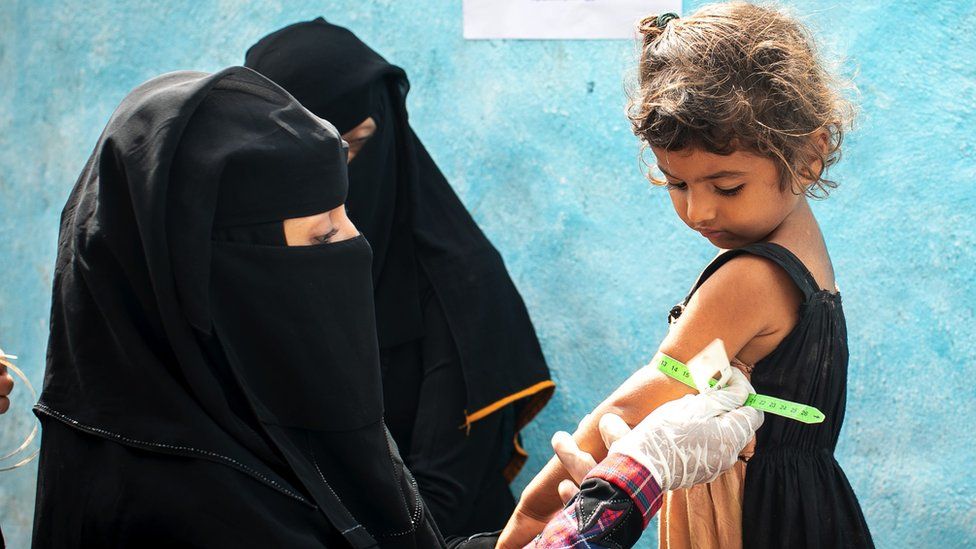Ukraine war could worsen crises in Yemen and Afghanistan
“Don’t make us take food from children that are hungry to give to children that are starving,” pleads the United Nations World Food Programme (WFP).
Soaring food and fuel costs, together with budget cuts in some traditional donor countries, have forced the WFP to halve the amount of food it is giving to millions of people in Yemen, Chad and Niger.
In December 2021, the UN made a record appeal for $41bn (£31bn) to help 273 million people this year.
As aid workers stress, these are not people who will be made a bit more comfortable by help from the UN. They are people, particularly children, who will probably die without it.
But that appeal was made before Russia invaded Ukraine. Both countries used to sell grain to the WFP.
Back then, Ukraine was a supplier, not a country in need of humanitarian assistance, as the WFP’s Geneva director Annalisa Conte points out.
In the first month of the war, the WFP reached a million people inside Ukraine. But its supply of Ukrainian grain, destined to feed some of the hungriest on the planet, has dried up.
Meanwhile, many African countries, while not dependent on UN aid, import grain from Ukraine.
Somalia gets more than 60% of its grain from Ukraine and Russia, while Eritrea gets nearly 97% of its wheat from Ukraine.
They now have to bid against Europeans and North Americans on the international market in search of food.
Jan Egeland, former head of UN emergency relief and now with the Norwegian Refugee Council, describes this as a “catastrophe” for the poorest parts of the world. “They will starve,” he says.
Source: https://www.bbc.com/news/world-60995064
